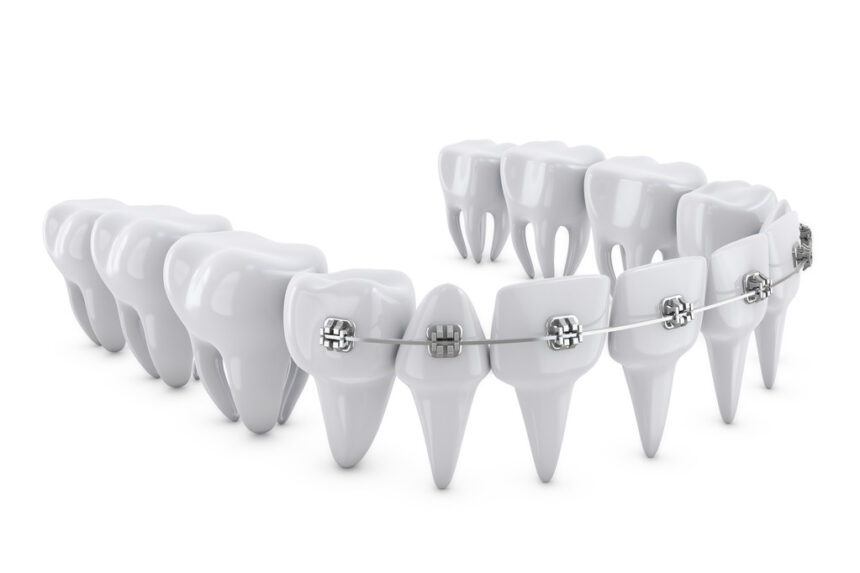Orthodontic braces play a vital role in enhancing dental health and cosmetic appearance by gradually aligning and straightening teeth. Understanding the average cost of braces is crucial for individuals embarking on this significant dental investment, enabling effective budgeting and financial preparation.
Different Types of Dental Braces
Metal Braces
Metal braces are a traditional orthodontic solution that effectively corrects misalignments and overcrowding. Comprising wires and brackets attached to the teeth, metal braces apply continuous pressure to facilitate gradual tooth movement.
Ceramic Braces
Similar to metal braces, ceramic braces are designed to straighten and align teeth. They employ clear or tooth-coloured brackets, offering a less noticeable alternative and appealing to those concerned about aesthetics.
Lingual Braces
Lingual braces are discreetly placed behind the teeth, making them virtually invisible when smiling. Custom-made to fit the individual’s mouth, lingual braces are often chosen to address misalignments or irregular tooth positioning.
Invisalign
Invisalign revolutionizes orthodontic treatment with custom-made, clear aligners that gently guide teeth into the desired position. This innovative approach, popular among adults and teens, provides a comfortable and aesthetically pleasing alternative to traditional braces.
Factors Influencing the Cost of Braces
Type of Braces Used
The choice between traditional metal braces, ceramic braces, lingual braces, or Invisalign significantly impacts the overall cost, including teeth braces cost. Each type has unique benefits and drawbacks, tailored to meet diverse patient needs.
Location of the Dental Clinic
The geographical location of a dental clinic affects the cost of braces. Clinics situated in bustling city centres may have higher prices due to increased overheads, accessibility, and proximity to amenities.

Average Costs Per Type of Braces
Metal Braces: $3,000 to $7,000
The average cost of metal braces varies, influenced by factors such as location, orthodontist expertise, and treatment complexity.
Ceramic Braces: $4,000 to $8,000
Ceramic braces, known for their aesthetic appeal, generally cost slightly more than metal braces due to the use of ceramic material.
Lingual Braces: $5,000 to $13,000
Lingual braces, placed behind the teeth for a discreet appearance, justify their higher price with increased complexity and customization.
Invisalign: $3,000 to $7,000
Invisalign treatment costs depend on the case’s complexity, treatment duration, and the orthodontist’s expertise.
Additional Costs to Consider
Initial Consultation
The initial consultation establishes the foundation for collaboration between the patient and the orthodontic professional, allowing a thorough understanding of the patient’s needs and the professional’s capabilities.
Dental X-rays
Essential diagnostic tools, dental X-rays provide detailed views of teeth, bones, and supporting tissues, aiding in the early detection of issues such as cavities and misalignments.
Follow-up Visits and Adjustments
Regular follow-up visits and adjustments are crucial for monitoring recovery and making necessary changes to ensure the success of orthodontic treatments.
Retainers After Treatment
Retainers are vital post-treatment to maintain results by preventing teeth from shifting back. Regular and proper use ensures a lasting, healthy, and beautiful smile.
Conclusion
Understanding the nuances of the average cost of braces empowers individuals to make informed decisions about their orthodontic treatment. It facilitates effective financial planning and ensures that the chosen type of braces aligns with both budgetary constraints and aesthetic preferences.

